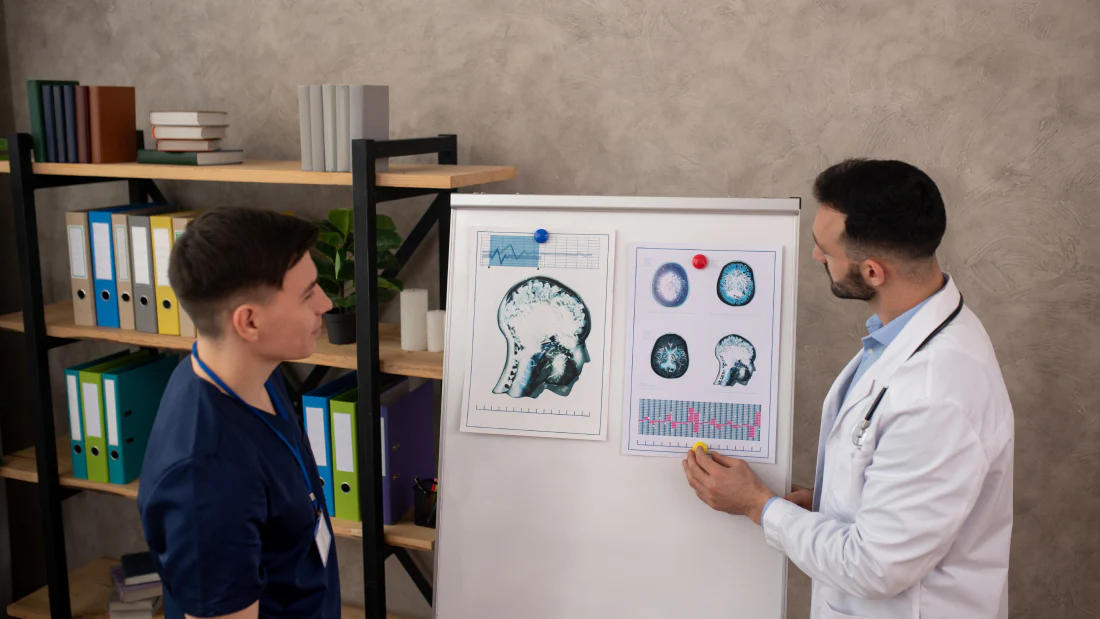Understanding the Role of a Certified Brain Health Coach
A certified brain health coach is a professional trained to guide individuals in improving cognitive function, enhancing memory, and boosting mental clarity. Unlike traditional health or wellness professionals, brain health coaches specialize in techniques that target the brain directly, using evidence-based methods to optimize cognitive performance. They assess clients’ mental habits, lifestyle choices, and overall wellness to create personalized plans that foster brain resilience. Daily tasks may include conducting cognitive assessments, monitoring progress, recommending lifestyle modifications, and teaching exercises that promote neuroplasticity. This role bridges the gap between neuroscience research and practical application, helping clients make informed decisions for their cognitive health. Brain health coaching emphasizes prevention, enhancement, and long-term wellness rather than quick fixes. By supporting clients in improving memory, focus, and emotional regulation, these professionals create measurable positive impacts in people’s lives.
Benefits of Working with a Certified Brain Health Coach
Engaging with a certified brain health coach offers numerous benefits that extend beyond cognitive performance. One of the primary advantages is improved mental clarity and focus, which can enhance productivity in both professional and personal settings. Clients also experience better stress management and emotional resilience as coaches guide them through mindfulness, meditation, and relaxation techniques. Personalized strategies target nutrition, sleep, and physical activity, all of which play critical roles in cognitive function. Brain health coaching can prevent cognitive decline and support memory retention, making it valuable for individuals of all ages. Clients often report increased energy, motivation, and mental sharpness, which directly influences daily performance. With consistent guidance and monitoring, brain health coaches help individuals implement sustainable lifestyle changes that maintain and improve cognitive wellness over time.
Steps to Becoming a Certified Brain Health Coach
Becoming a certified brain health coach involves several key steps, beginning with the right educational foundation. A background in health, psychology, neuroscience, or wellness is highly recommended, although motivated learners from other fields can also pursue certification. Prospective coaches should choose reputable accreditation programs that provide comprehensive training in cognitive science, neuroplasticity, and coaching techniques. Developing core skills such as active listening, communication, and personalized program design is essential for client success. The certification process may vary in duration but generally involves a combination of coursework, practical exercises, and assessments. Financial investment is another consideration, as programs differ in cost depending on the depth and resources provided. Mentorship or supervised practice can further enhance learning and prepare candidates for real-world coaching scenarios.
Tools and Techniques Used by Brain Health Coaches
Certified brain health coaches rely on a wide array of tools and techniques to support their clients’ cognitive development. Cognitive assessments, for example, help identify strengths and areas for improvement, providing a foundation for personalized programs. Coaches often implement brain training exercises that target memory, attention, and problem-solving skills. Nutrition and supplementation guidance ensure that clients are fueling their brains with the necessary nutrients for optimal performance. Stress-reduction practices, including mindfulness and meditation, help manage emotional well-being and prevent cognitive fatigue. Modern technology, such as apps and wearable devices, is also incorporated to track progress and engagement. Coaches may offer structured routines and habit-building strategies to reinforce mental exercises and lifestyle changes. These techniques work together to create a holistic approach that addresses both mental performance and overall brain health.
Career Opportunities and Growth Potential
The demand for certified brain health coaches continues to rise as awareness of cognitive wellness grows. Career paths include working in clinics, wellness centers, corporate wellness programs, or private practice. Many coaches also offer online consultations and virtual coaching sessions, which expand their reach and flexibility. Collaboration with other healthcare professionals, such as therapists, nutritionists, and personal trainers, creates integrated wellness plans for clients. Specialization is another avenue for growth, allowing coaches to focus on areas such as aging populations, stress management, or peak performance enhancement. Opportunities for speaking engagements, workshops, and educational programs further enhance professional visibility. The field is dynamic, offering continuous learning and skill development, ensuring that certified brain health coaches can evolve alongside new research and methodologies.
Common Misconceptions About Brain Health Coaching
Despite its growing popularity, several misconceptions about brain health coaching persist. Some people mistakenly believe that a brain health coach offers quick fixes or miracle solutions, which is far from the truth. Certified brain health coaches rely on evidence-based approaches supported by neuroscience research, not unverified claims. Another common myth is that coaching is only for individuals with cognitive decline, when in reality, it benefits anyone seeking improved mental performance. Brain health coaching is also often confused with therapy or counseling, but its primary focus is on optimization and prevention rather than treating mental illness. Coaches empower clients with practical strategies they can implement daily, emphasizing lifestyle adjustments and cognitive exercises. By clarifying these misconceptions, more people can access the benefits of cognitive wellness programs. The field is anchored in science, accountability, and client-centered approaches, making it a credible and effective form of wellness support.
How Clients Can Maximize Their Brain Health Coaching Experience
To fully benefit from brain health coaching, clients should commit to setting realistic goals and maintaining consistency with their programs. Establishing measurable objectives allows clients and coaches to track progress and adjust strategies as needed. Lifestyle changes, such as improving sleep patterns, nutrition, and physical activity, complement coaching exercises and reinforce results. Regular feedback and reflection sessions help clients understand which techniques work best for them. Engagement with cognitive exercises and mindfulness practices is essential for sustained improvement. Documenting progress through journals, apps, or assessment tools provides accountability and motivation. Clients who actively participate and follow personalized plans often experience accelerated cognitive gains and long-lasting benefits.
Frequently Asked Questions
What qualifications are required to become a certified brain health coach?
Prospective coaches typically need a background in health, psychology, or neuroscience. Certification programs provide the necessary training in coaching techniques and cognitive science.
How long does it take to get certified?
The duration depends on the program but generally ranges from several weeks to a few months, including coursework and practical assessments.
Can brain health coaching help with memory loss or cognitive decline?
Yes, coaches work with clients to implement evidence-based strategies that support memory retention, neuroplasticity, and cognitive function.
Is a certified brain health coach suitable for people of all ages?
Absolutely. Coaching programs can be tailored to young adults, professionals, aging individuals, or anyone seeking cognitive enhancement.
How does brain health coaching differ from therapy or counseling?
Brain health coaching focuses on optimizing cognitive function and preventing decline rather than treating mental health disorders. It provides practical strategies and exercises to improve mental performance.
Takeaway
A certified brain health coach empowers individuals to take control of their cognitive wellness, enhance mental clarity, and adopt sustainable habits for long-term brain health. By understanding the science behind neuroplasticity, personalized coaching techniques, and lifestyle strategies, clients can achieve improved focus, memory, and emotional resilience. The growing demand for this profession highlights its impact and potential for meaningful careers in the health and wellness industry. Engaging with a certified brain health coach is an investment in both personal development and overall quality of life.











